Mariners are the cornerstone of new US maritime revitalization plan
1 March 2022
FOR IMMEDIATE RELEASE
GROWING, TRAINING AND PROTECTING THE MARITIME WORKFORCE CORNERSTONE OF US MARITIME REVITALIZATION PLAN
“Change is not a threat but an opportunity”
WASHINGTON, DC – A landmark Revitalization Plan for US Maritime Trade, Commerce and Strategic Competition that was launched earlier this month in Washington, DC contains, at its core, a commitment to growing, training, focused on protecting and growing the maritime workforce. With provisions for increasing jobs for mariners, providing education and training resources, and policies designed to enhance their security and safety, the plan is clearly a benefit for workers and the US maritime industry.
“We have witnessed an industry that has fallen dramatically over the last couple of decades,” observed Eric R. Dawicki, President of Northeast Maritime Institute, the sponsor of the plan. “We have not witnessed it more so than the last two years with the pandemic being so rough on our maritime trade and commerce. What we’re hoping, what we’re truly hoping, is that all of the relevant stakeholders come together and work together to make this a reality.” At the launch of the Revitalization Plan, President Dawicki stated: “We gather here today as an interested maritime community, as American citizens and as a collective body of people who care deeply about the maritime industry. We are guided by the creed ‘to honor the Mariner’ and to give back to an industry that has provided wealth and prosperity to our nation throughout the centuries.”
A Revitalization Plan for US Maritime Trade, Commerce and Strategic Competition was developed by a team of Distinguished Fellows at the Northeast Maritime Institute – Center for Ocean Policy and Economics (COPE) and advised by an array of leading thinkers in the maritime industry. Key elements of the plan include formation of the U.S. Virgin Islands’ open international ship registry—the first, and only, international U.S. open ship registry. The plan also includes establishing and implementing a green shipping strategy, including decarbonization of the U.S.-flagged fleet and modernization of the maritime workforce by deploying state of the art education and training tools in the US and abroad.
“This registry will protect all Merchant Mariners sailing on USVI Flagged vessels, including their legal, physical, and human rights’ asserted Dawicki. This flag will allow mariners from countries approved by OFAC to participate and find employment. However, we also want to excite US Mariners to work on USVI vessels by providing the right working conditions, competitive wage scales and realistic health and welfare standards to ensure long-term commitment across the board. The vision is to provide additional jobs and therefore help expand the US labor pool, not to compete in any manner with existing US jobs and industry.”
The plan to create a US flag open registry has been met with resistance from a coalition of US maritime unions currently making up approximately 18% of the maritime labor pool within the domestic United States. The Unions ho historically object to changes to the status quo and expressed concern that US mariners will be adversely affected. In response, Dawicki stated “The Revitalization Plan is the most progressive plan regarding maritime job creation and workforce development in three or four decades. We stand by the plan as it thoughtfully increases opportunities that are long term and sustainable for economic development through short sea shipping initiatives that will be enabled through the transshipment hub.”
Observed Captain Anuj Chopra, Co-Founder of ESGPlus: “I think the seafarers are excited about this plan as there is a strong welfare element. We want diversity, equity, and inclusion as an entry point into the system and strong policies against SASH.”
###
Go to US Maritime Revitalization Plan Launch to view the full event.
About Northeast Maritime Institute
Northeast Maritime Institute (also called NMI) is a private, coeducational, maritime college offering an Associate in Applied Science in Nautical Science degree. Established in 1981, Northeast Maritime Institute is the only private maritime college in the Commonwealth of Massachusetts. The college was originally established to provide an alternative to traditional education and training, with an emphasis on preparing mariners for employment. Graduates receive an Associate degree and are eligible to receive a United States Coast Guard Masters license upon graduation. Northeast Maritime Institute has trained over 70,000 mariners since 1995.
About COPE
The Center for Ocean Policy and Economics (COPE) is hosted by the Northeast Maritime Institute – College of Maritime Science: Created to tackle some of the ocean’s “wicked problems.” A culmination of years of extensive research and conversations with leading experts in the maritime and ocean related fields, COPE is a facilitator for cogent maritime and ocean policy and economic development project initiatives linking academic, corporate, non-governmental, and governmental partners to create impactful solutions. Additional information can be found at COPE.

